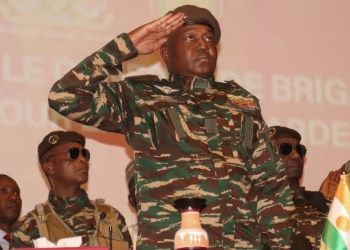The political alliance between President William Ruto and opposition leader Raila Odinga may hinder the rise of emerging political figures, particularly those aiming to challenge sitting governors.
Early indications suggest that county governors, especially those serving their first terms, might avoid intense political competition due to this new collaboration.
Some governors are close allies of both Raila and Ruto, with two from the ODM party serving as deputy leaders: Simba Arati (Kisii) and Abdulswamad Nassir (Mombasa).
Political analyst Daniel Orogo warns that if the Ruto-Raila partnership endures until 2027, it could lead to significant political fallout, affecting prominent figures in Nairobi, Nyanza, Coast, and Western regions.
Orogo noted that the leaders are likely to prevent their parties from undermining each other, which would threaten political seats. He mentioned that this arrangement could jeopardize the ambitions of their allies eyeing governorships.
Some of these potential casualties have already voiced opposition to the alliance as part of their survival strategy. Their concerns echo the aftermath of the 2018 deal between Raila and former President Uhuru Kenyatta, which led to numerous political casualties.
In Nairobi, Babu Owino (Embakasi East) and James Gakuya (Embakasi North) have expressed discontent with the broad-based government, both aiming for Nairobi Governor Johnson Sakaja’s seat in 2027.
Deputy President Rigathi Gachagua’s camp is backing Gakuya as a challenger to Sakaja’s re-election bid. Although Sakaja denies any deal with Raila, he has been seen increasingly aligning with the former ODM leader.
In a recent interview, Sakaja emphasized his commitment to face competitors and asserted that his relationship with Raila is not tied to his re-election prospects.
Other incumbent governors in strongholds of Raila and Ruto who might benefit from the deal include Arati, who recently became ODM’s deputy leader, along with Paul Otuoma (Busia), Fernandes Barasa (Kakamega), Abdulswamad Nassir (Mombasa), Gideon Mung’aro (Kilifi), Susan Kihika (Nakuru), and Patrick Ntutu (Narok).
In Kakamega, Barasa, who defeated Kenya Kwanza’s Cleophas Malala in 2022, must navigate a challenging relationship with the ODM party to gain from this alliance. Recently, he criticized ODM’s changes to the county assembly leadership.
Barasa faces stiff competition from Senator Boni Khalwale, who appears to have support from both Ruto and Raila, along with backing from former Governor Wycliffe Oparanya.
The contest for governorship in Kenya’s 47 counties is highly competitive, as these positions control substantial budgets and resources.
In Mombasa, Ruto’s UDA is experiencing internal conflicts as Nyali MP Mohamed Ali and EALA MP Hassan Omar vie for the party ticket.
Governor Ntutu in Narok seems well-positioned against potential rivals, thanks to his cooperation with both the President and Raila.
Reports indicate Senator Ledama Olekina is seeking the ODM ticket to challenge Ntutu in 2027, with Narok seen as a political battleground.
Kihika in Nakuru faces a fiercely competitive environment, having narrowly defeated Lee Kinyanjui of Azimio in the last elections.
Political dynamics in Kisii may shift as Arati and South Mugirango MP Sylvanus Osoro seem to be reconciling after the Ruto-Raila deal. Osoro, previously seen as Arati’s main opponent, may now reconsider his 2027 ambitions.
This political maneuvering mirrors past elections when alliances allowed certain governors to retain their seats while others were encouraged to pursue different positions.
In several counties, parties were directed to support dominant candidates, leading some aspirants to leave the coalition for smaller parties or run as independents.
For example, in 2022, Westlands MP Tim Wanyonyi was persuaded to step aside for Polycarp Igathe in the ODM ticket.
Ruto has indicated that his Kenya Kwanza coalition may form a partnership with Raila’s ODM in 2027. During a recent event, he suggested that leadership of the opposition should be handed over to new figures, implying that both major parties must make significant sacrifices to prevent their rivals from gaining an advantage through multiple candidates for any given seat.















